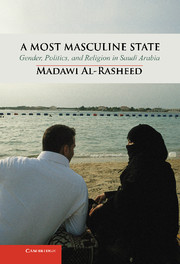Book contents
- Frontmatter
- Contents
- Acknowledgments
- Introduction
- 1 From Religious Revival to Religious Nationalism
- 2 Schooling Women
- 3 Symbols of Piety
- 4 The Quest for Cosmopolitan Modernity
- 5 Women in Search of Themselves
- 6 Celebrity Women Novelists and the Cosmopolitan Fantasy
- 7 Guarding Self and Nation
- Conclusion
- Glossary
- Bibliography
- Index
- References
5 - Women in Search of Themselves
Published online by Cambridge University Press: 05 February 2013
- Frontmatter
- Contents
- Acknowledgments
- Introduction
- 1 From Religious Revival to Religious Nationalism
- 2 Schooling Women
- 3 Symbols of Piety
- 4 The Quest for Cosmopolitan Modernity
- 5 Women in Search of Themselves
- 6 Celebrity Women Novelists and the Cosmopolitan Fantasy
- 7 Guarding Self and Nation
- Conclusion
- Glossary
- Bibliography
- Index
- References
Summary
Her soul remained hanging in a place that rejects her bright colours. She is tormented by rejection and internal wars the objective of which is to draw the boundaries and close the windows.
Umayma al-KhamisThe literary productions of the first generation of Saudi women essayists, columnists, poets, and novelists are explored in Sadeka Arebi's anthropological monograph Women and Words. The fact that Saudi Arabia produced so many women writers in the second half of the twentieth century may have surprised many observers but can be attributed to a number of factors. First, the expansion in girls’ education in the humanities and social sciences, religious studies, and history since the 1960s is an important contributing factor. In 2009, forty-one per cent of all students at the twenty-four public universities enrolled in arts and humanities subjects. Second, limitations on women's employment in the wider economy may have been a contributing factor, pushing an increasing number of women towards writing. Third, the marginality of Saudi women in the public sphere with the consolidation of the state project in the second half of the twentieth century against their historical centrality in social, religious, and political contexts may have led women towards equally marginal activities such as literature in a society where fiction, in particular the novel, has been condemned as an alien, decadent, and suspicious mode of expression imported from the West. While educated men occupied key positions in the technologised state apparatus as bureaucrats and technocrats, that is, ‘scientific experts’ needed for the process of state-initiated development projects, for a long time women remained on the margin, seeking recognition and a voice in writing. Those who write novels are seen as practising an unworthy and dangerous hobby rather than a profession. And fourth, there is nothing in the Saudi legal restrictions that is specifically against writing fiction, thus allowing both women and men a space where they can explore taboo ideas without incurring the wrath of those in power or their legal practitioners. A woman novelist is considered less threatening than an activist who mobilises a community of women. In the words of a Saudi novelist, the novel ‘has become a loophole, it expresses what we dare not say and want to break the taboo’.
- Type
- Chapter
- Information
- A Most Masculine StateGender, Politics and Religion in Saudi Arabia, pp. 175 - 211Publisher: Cambridge University PressPrint publication year: 2013

